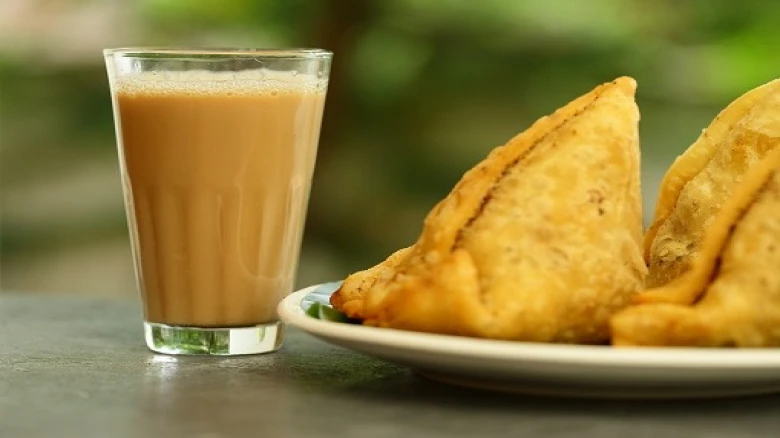The maximum amount of money that can be spent on a candidate for the Lok Sabha is Rs. 95 lakh in most states....
Digital desk: As part of the election expenditure monitoring process, district poll committees are setting the rates for expenses as the 18th Lok Sabha poll comes near. In Jalandhar, Punjab, candidates can purchase a cup of tea for Rs. 15 and a samosa for the same amount during public meetings and the Lok Sabha election campaign route.
However, a cup of tea in Madhya Pradesh's Mandla costs Rs. 7, and a samosa, which is a common snack across the nation, costs an additional Rs. 7.50.
The candidates must control their spending within the allotted budget. These rate cards frequently spark a social media "meme-fest" over the pricing not keeping up with the rate of inflation.
The maximum amount of money that can be spent on a candidate for the Lok Sabha is Rs. 95 lakh in most states, including Andhra Pradesh. Nevertheless, the cap is a little lower in Arunachal Pradesh, Goa, and Sikkim, at Rs. 75 lakh per candidate. Similarly, depending on the area, the Union territory expenditure cap for each candidate varies from Rs. 75 lakh to Rs. 95 lakh.
Tea, samosas, kachori, khajur (dates), and gaja (dessert) are all priced at Rs. 10 in the violence-plagued Manipur region of Thoubal.
Candidates in the Tengnoupal district of the northeastern state will have to limit their tea purchases to Rs. 5 for black tea and Rs. 10 for milk tea. There are more non-vegetarian options on the list, with pork and duck priced at Rs. 400 and Rs. 300 per kg, respectively. Fish like rohu, mrigal, and sareng, as well as broiler chicken, are also included.
In Chennai, the price of a packet of chicken biryani has dropped from Rs. 180 to Rs. 150 in comparison to 2019. However, the cost of tea rose from Rs. 10 to Rs. 15 and coffee from Rs. 15 to Rs. 20.
A vegetarian thali costs Rs. 100, a samosa or cup of tea costs Rs. 10, kachori costs Rs. 15, a sandwich costs Rs. 25, and a kilogram of jalebi costs Rs. 90 per kg, according to the Gautam Buddha Nagar (Noida/Greater Noida) spending card.
Candidates from North Goa can get batata vada for Rs. 15, which is the same price as a samosa. While coffee can cost up to Rs. 20, tea has a set price of Rs. 15.
The rate card for Jind, in Haryana, provides candidates the option to hire a tandoor for Rs. 300 and includes specialties like mix veg and dal makhani for Rs. 130, while matar paneer costs Rs. 160. In addition to desserts like gulab jamun and kaju katli, the platter also includes breads like butter naan, missi roti, and plain roti.
While workers and voters are frequently offered drinks by parties and candidates, alcohol is not mentioned on any of the rate cards.
The rate cards also list other headings that are mentioned, such as costly infrastructure like helipads, luxury cars, and farmhouses, as well as random items like flowers, coolers, tower air conditioners, and sofas.
The rates for renting various cars for campaigning, such as a bus, ferry, Honda City, Ciaz, or Tata Safari, have also been set by the rate cards. These vehicles can be used to transport the public to rally sites.
Some poll panels additionally set rates for bouquets, marigold garlands, and rose garlands; other panels have included party supplies such as flags and caps.
A list of acceptable fees for renting out spaces and lodging is also included on the rate cards. Public gatherings, protests, ads, billboards, booklets, flexes, campaign materials, and any other election-related work are all included in the expenditure.
At present, there is a limit on the amount of money political parties can spend on electioneering, but there are no limits on the amount of money that can be spent on individual candidates running for office. The maximum amount that can be spent on campaigning in a Lok Sabha constituency differs between states and Union territories, as per the updated guidelines released by the ECI.
Candidates are required to maintain a record of all expenses spent on the elections from the "date on which he has been nominated" to the "date of declaration of the result," according to Section 77 (1) of the Representation of the People Act, 1951.
There will be seven phases to the voting process for the 543 Lok Sabha seats, with the first phase beginning on April 19 with 102 seats. There will be a vote counted on June 4.

Leave A Comment